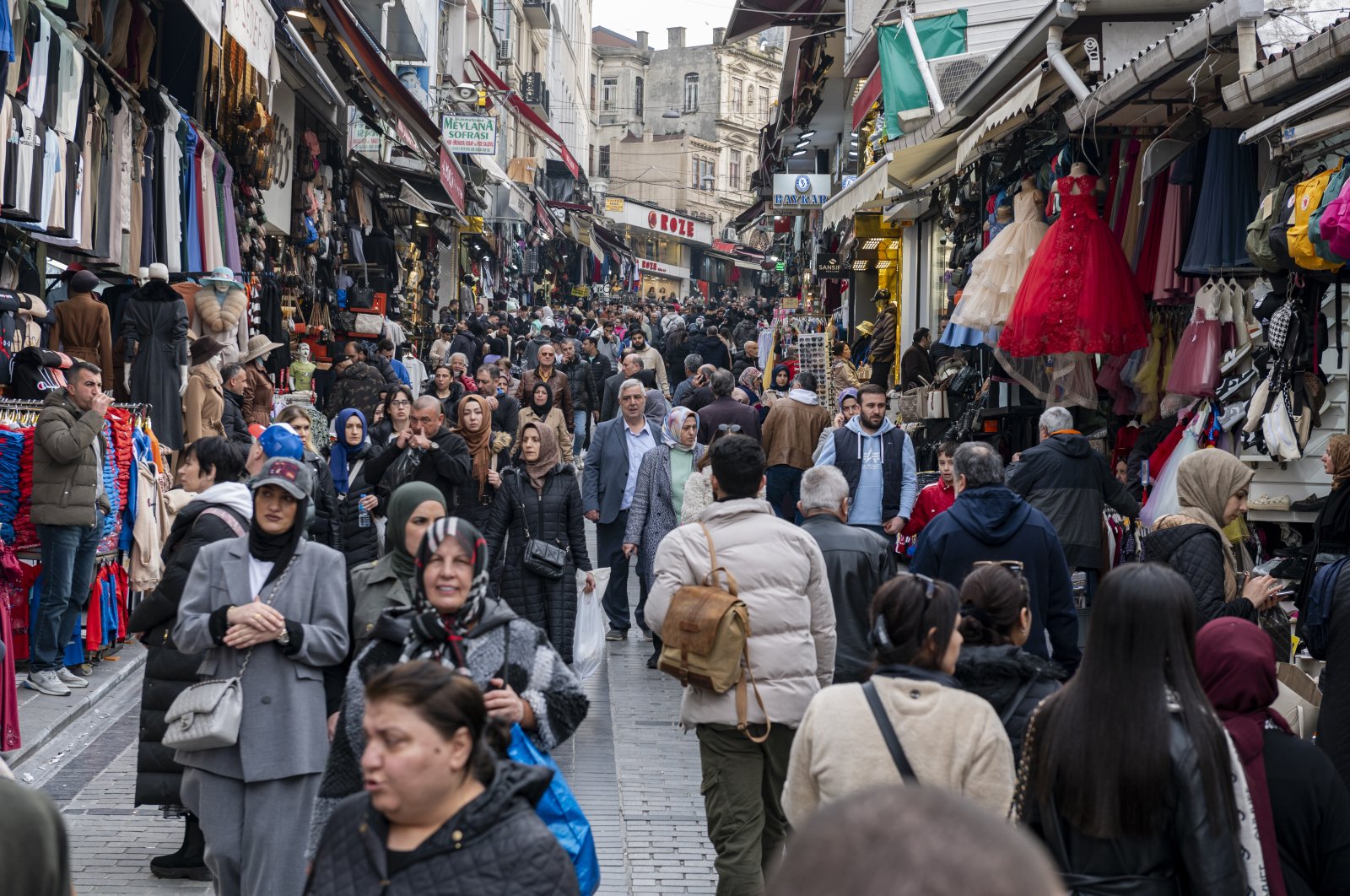
Türkiye's annual inflation climbed above 75% in May, official data showed on Monday, in what is said to mark the peak as the nation leaves the "worst behind" before a series of interest rate hikes and relatively stable lira bring relief.
Inflation ticked up to 75.5%, the highest level since late 2022, and compared to just under 70% in April, according to the Turkish Statistical Institute (TurkStat).
The rise in the consumer price index was driven by strong advances in education, housing and restaurant prices last month, the data showed.
Monthly price growth, one of the main focuses of the Turkish central bank, is also expected to ease after May, when it was 3.37%, compared with 3.18% in April.
Treasury and Finance Minister Mehmet Şimşek said the "worst is left behind," and relief will begin this month.
"The transition period in the fight against inflation is completed; we are entering the disinflation process," Şimşek wrote on social media platform X, formerly Twitter, shortly after the data release.
The Central Bank of the Republic of Türkiye (CBRT) has raised its policy rate by 4,150 basis points since June last year and vowed to tighten it more if there is "a significant and persistent deterioration" in the outlook.
It last raised rates in March by 500 basis points to 50%, citing a worsening inflation outlook and has since held steady.
The tightening since after last May's presidential and parliamentary elections marked a reversal of years of loose monetary policy.
The lira has remained steady since March, helping underpin the expected inflation relief. The currency, down about 8% this year, traded at 32.19 against the U.S. dollar at 3.20 p.m. local time in Istanbul.
The May reading marked a stronger-than-expected acceleration in price gains. Polls by Reuters and Anadolu Agency (AA) forecast a peak at about 74.8%.
The CBRT expected it to hover between 75%-76%.
Monthly inflation climbed 6.7% and 4.53% in January and February, mainly due to a nearly 50% minimum wage hike and an array of new-year price updates. In March and April, the rise slowed to around 3.2%.
Liam Peach, the senior emerging markets economist at London-based research group Capital Economics, noted the higher-than-expected print and said it was "slightly disappointing."
"It had looked like price pressures were easing in recent months, but the 3.4% month-over-month increase in May was higher than in both March and April," Peach said in a note, predicting that "bumpy disinflation lies ahead."
"We're confident that inflation has now reached a peak, but with today's release containing a few unpleasant surprises, the pace of disinflation in the second half of the year is looking a bit more uncertain," Peach said.
'Patience and time'
Policymakers are still optimistic about a steep deceleration.
Last month, the central bank raised its year-end inflation forecast to 38% and said it would "do whatever it takes" to prevent the outlook from deteriorating further.
Şimşek said a "permanent decline" would begin in June, bringing inflation "most likely under 50%” by the end of the third quarter.
The data showed food and non-alcoholic beverage prices accelerated to 70.1% annually in May. That compared to 68.5% in the previous month
Core inflation, which excludes volatile items like energy and food, was 75%, easing from 75.8% in April.
Services inflation remained elevated, with restaurant and hotel prices soaring over 5.5% every month
The domestic producer price index was up 1.96% month-over-month in May for an annual rise of 57.68%, the data showed.
The policy reversal has drawn foreign investor interest and helped boost the central bank's foreign reserves, which are at the highest level since December on a net basis.
International investors are ramping up exposure to Turkish local bonds and credit default swaps. JPMorgan said it had moved its allocation to Turkish domestic government bonds to "overweight," citing increasing confidence in the policy.
Polls by Reuters and Anadolu Agency (AA) estimate year-end inflation at 42.6% and 43.95%, respectively.
Still, Şimşek said market expectations would converge closer to the policymakers' estimates in the coming period.
"The market predicts disinflation and expects annual inflation to be 33.2% after 12 months and 21.3% after 24 months," he noted.
"We will continue to support the disinflation process by strengthening fiscal discipline," the minister added.
"Achieving price stability requires patience and time; we are determined to reach our goal."
